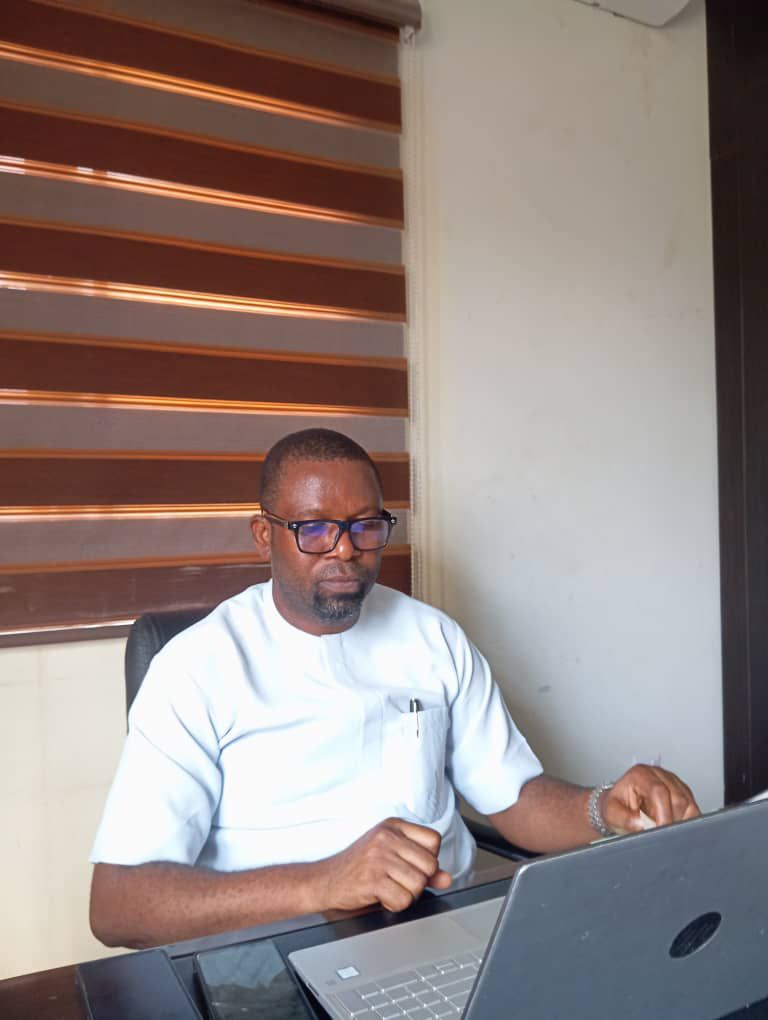
In the wake of President Bola Ahmed Tinubu’s recent cabinet reshuffle, the civil society organization Common Cause Nigeria has formally urged the Economic and Financial Crimes Commission (EFCC) to conduct an urgent and thorough audit of the financial activities of the recently removed ministers.
This call comes amid rising concerns about potential financial misconduct during their tenures, raising questions about accountability and governance at the highest levels of Nigerian leadership.
During a press conference held in Abuja, National Coordinator Chidi-Peters Okorie expressed the organization’s deep concerns, noting that the investigation should not only seek to identify any potential misappropriation of public funds but also to provide these individuals with a clean financial scorecard if they are found innocent.
“This is vital for the sake of posterity and public trust. A thorough investigation can either hold accountable those who have failed in their duties or clear the names of those who have conducted themselves with integrity,” Okorie added.
Among those in question are Uju-Ken Ohanenye, the former Minister of Women Affairs; Lola Ade-John, the ex-Minister of Tourism; Tahir Mamman, who served as Minister of Education; Abdullahi Gwarzo, the former Minister of State for Housing and Urban Development; and Jamila Ibrahim, the former Minister of Youth Development.
Okorie emphasized the importance of transparency in government operations, stating, “We are at a critical juncture in Nigeria’s fight against corruption. The swift action taken by the President in reshuffling the cabinet raises important questions about the conduct of these ministers. We owe it to the Nigerian people to ensure that all transactions during their time in office are scrutinized for any signs of mismanagement or illicit activities.”
The abrupt removal of these key cabinet members has not only garnered public attention but also ignited speculation regarding the underlying reasons for their dismissal. While official statements suggest that the reshuffle aims to enhance governance and improve efficiency within the cabinet, the potential implications for financial accountability cannot be overlooked. Many observers are questioning whether these changes are merely cosmetic or if they signify a genuine commitment to tackling corruption within the government.
Corruption has long plagued Nigeria, eroding public trust in governmental institutions. The EFCC has historically faced criticism for its handling of corruption cases, often perceived as sluggish or lacking in thoroughness. Citizens have increasingly expressed frustration with the agency’s perceived ineffectiveness, prompting calls for reform and greater accountability in public service. The urgency expressed by Common Cause Nigeria underscores a growing demand from the populace for enhanced oversight and transparency in government operations. The organization asserts that public confidence in government institutions hinges on their ability to act decisively against corruption.
Common Cause Nigeria’s call for an investigation also highlights the vital role that civil society organizations play in holding government officials accountable. By advocating for transparency and demanding action from the EFCC, these organizations serve as watchdogs, pushing for systemic reforms and ensuring that citizens’ voices are heard in the fight against corruption. The involvement of civil society in this process is crucial, as it helps to foster a culture of accountability and integrity within government institutions.
As Nigeria navigates the complexities of governance and accountability, the investigation into the financial dealings of the recently removed ministers will be pivotal. The outcome of this inquiry could have far-reaching consequences, not only for the individuals involved but also for the broader political landscape in Nigeria. It has the potential to set a precedent for future administrations, emphasizing the need for rigorous financial oversight and ethical conduct in public office.
Okorie concluded the press conference with a powerful call to action: “The time for action is now. We cannot afford to turn a blind eye to corruption, especially when the livelihoods of millions are at stake. We call on the EFCC to act decisively and promptly.” This sentiment resonates with a growing number of Nigerians who are demanding accountability from their leaders and a government that operates transparently and with integrity.
In a nation where the effects of corruption are felt by everyday citizens, the actions taken by the EFCC in response to this urgent call could represent a defining moment in Nigeria’s ongoing battle against financial malfeasance. As the investigation unfolds, all eyes will be on the EFCC to see whether it can rise to the occasion and restore public trust in Nigeria’s governance. The commitment to accountability and ethical leadership is not just an ideal; it is essential for the future stability and prosperity of Nigeria.



Discussion about this post